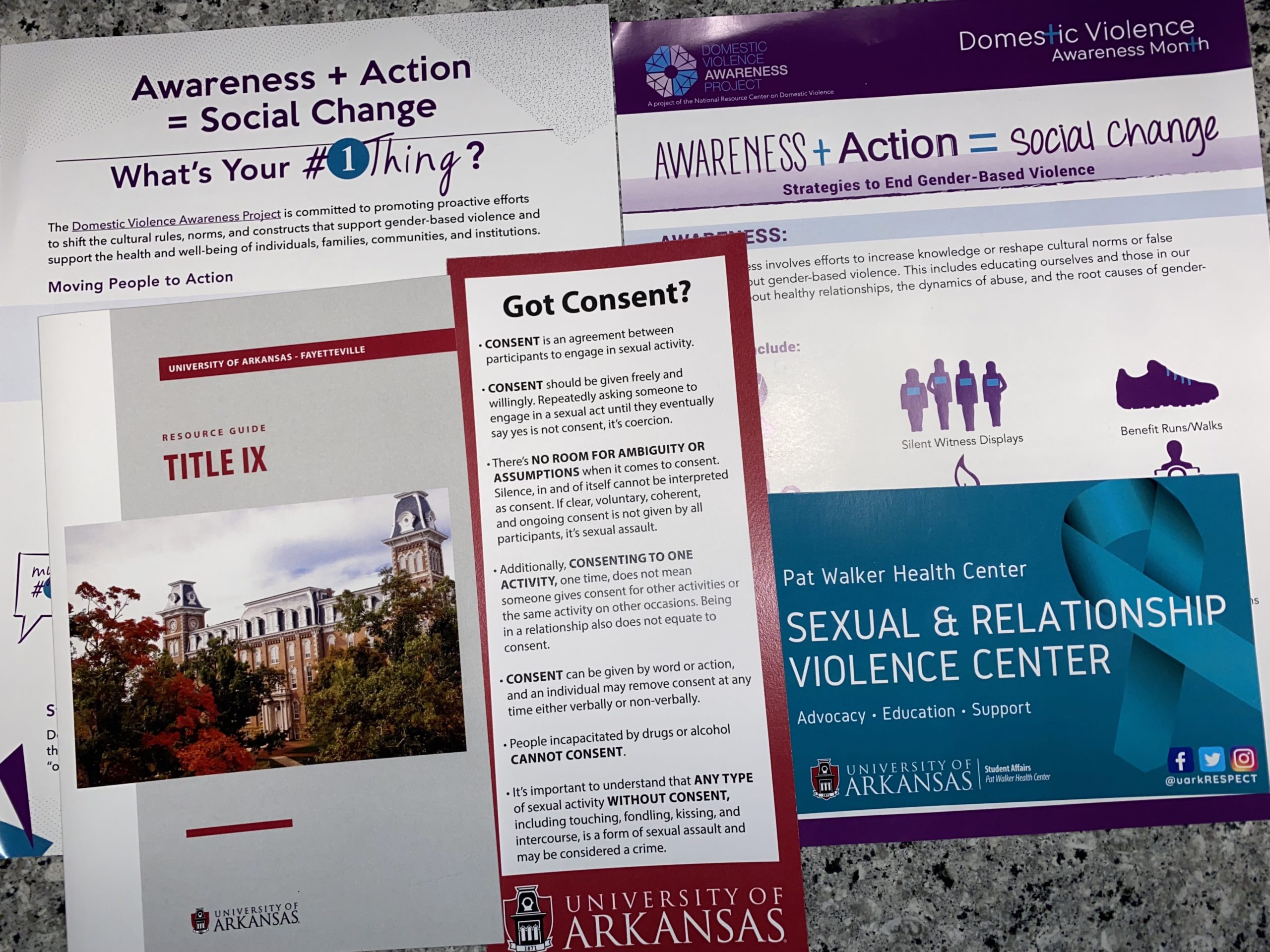By: Madeleine Dunn
FAYETTEVILLE, Ark. (UATV) – Domestic violence includes physical and sexual violence, threats and emotional abuse, according to the National Coalition Against Domestic Violence.
The University of Arkansas recognized October as Domestic Violence Awareness Month. October 21 was recognized as “#PurpleThursday,” which raised awareness surrounding domestic and dating violence and showed support for survivors.
Title IX Coordinator Shanita Pettaway said around 20,000 calls are made every day to domestic violence hotlines.
“Approximately one in four and one in nine men experience domestic violence in their lives,” Pettaway said. “So, because of the prevalence on a national level, I feel it’s very important to address it on an institutional level as well.”
Pettaway said that each group is equally as vulnerable to experience this. This means that any student can become a victim. “There is no group that is immune to domestic violence,” Pettaway said.
The university offers resources for students who need help in these situations.
The Title IX Office has free resources for enrolled students.
“By you making contact with the office, we immediately arrange for supportive measures to be made available for you,” Pettaway said, “and some examples of those are the Sexual and Relationship Violence Center, our Counseling and Psychological Services, there’s the EAP program, which is particularly for employees, as well as UAPD.”
The Pat Walker Health Center features different programs for physical and mental help. These programs include the Sexual and Relationship Violence Center, Counseling and Psychological Servies (CAPS) and the Primary Care Clinic.
The Sexual and Relationship Violence Center aims to be a stepping stone for students who experience domestic abuse but may not be ready to report the incident.
Erin Womack, a graduate assistant for the Sexual and Relationship Violence Center, said her job allows her to listen to students’ experiences and provide confidentiality.
“The people you talk to in this office are not obligated to report to the university, even though we work for the university,” Womack said. “We’re like a big resource center.”
Womack emphasized that the center never pressures students to something they’re uncomfortable with, but rather give them the tools they may not have. “We support students in any decision that they want to make,” Womack said.
Other opportunities from the Violence Center include RESPECT, an award-winning, peer education program, support groups, academic one-hour classes, outreach and education programs and confidential one-on-one advocacy services.
According to Pettaway, awareness plus action equals change.
“Some of the ways we can arrive at that action is through community partnerships, through mentoring, through education, through awareness on a campus level…I could go on for days,” Pettaway said.
Some strategies to raise awareness on campus include wearing purple ribbons, bystander intervention, community engagement, health promotion, systems change and youth engagement.


